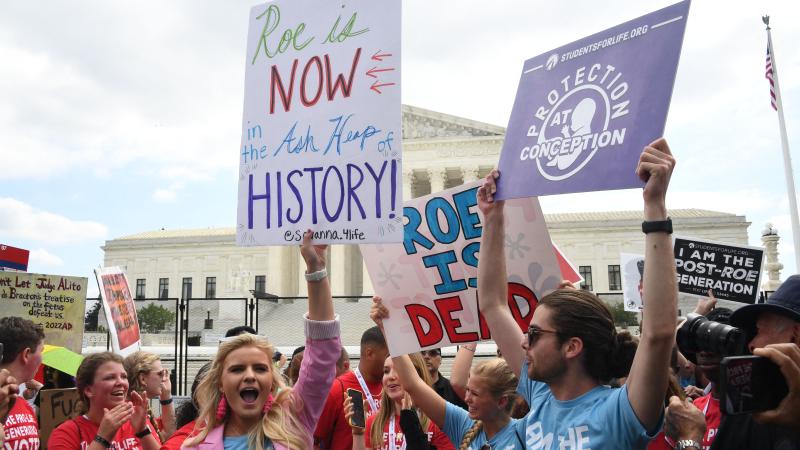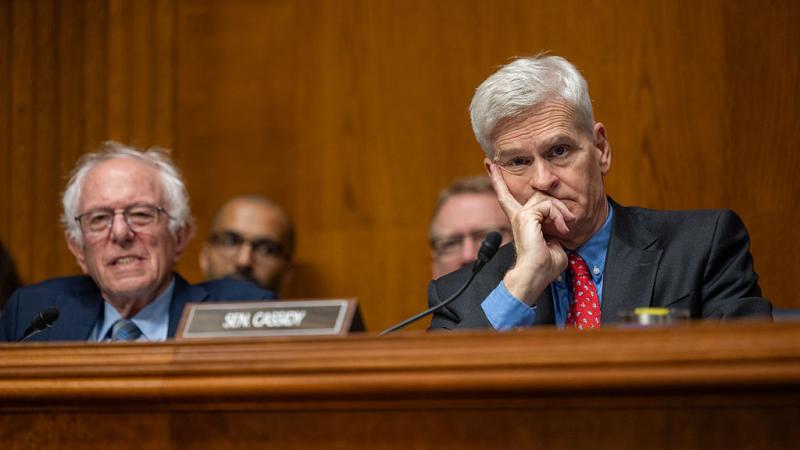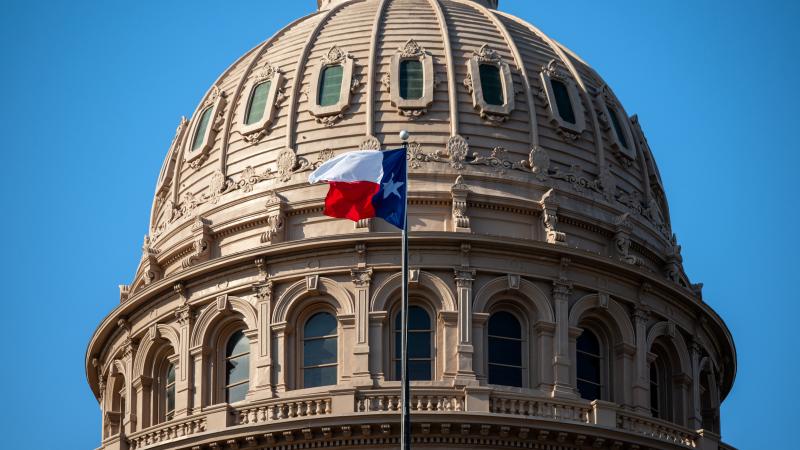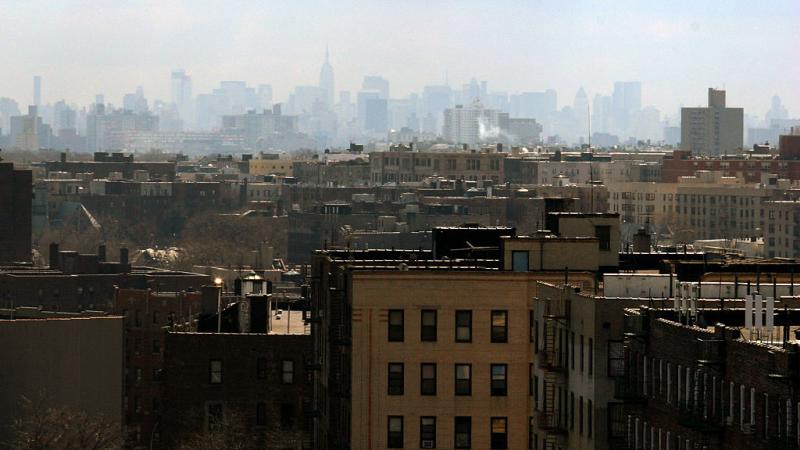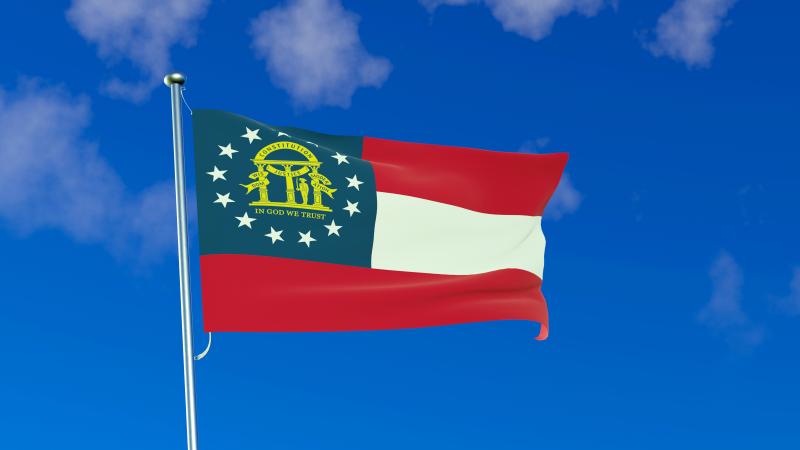Blue state censors pro-life pregnancy centers, forces them to lie, bans their ads: lawsuit
The "substantially overbroad" yet "underinclusive" Delaware law, "almost the exact same" as California law blocked by SCOTUS, contradicts other laws by defining medical professionals in strange ways, First Amendment lawsuit says.
The First State is playing second banana to The Golden State's failed experiment in compelled speech against pro-life pregnancy centers, according to a new federal lawsuit.
The National Institute of Family and Life Advocates, a pregnancy center network and Delaware member A Door of Hope sued Delaware Attorney General Kathy Jennings to block and nullify as unconstitutional a state law that is "almost the exact same" as the California law blocked by the Supreme Court in an earlier NIFLA challenge.
Unlike other blue states going after pro-life organizations through their AGs' general authority to investigate consumer fraud and deceptive practices, a Delaware law taking effect next month singles out pro-life centers for compelled speech while exempting "all pro-choice advocacy groups and pro-choice medical facilities," the suit says.
Such laws have a poor track record in court. California agreed to a permanent injunction after the Supreme Court blocked its law in 2018, and Illinois did the same to settle NIFLA litigation in 2023, after a President Trump-nominated judge blasted its similar law as "stupid and very likely unconstitutional."
That hasn't stopped other blue states from singling out pro-life centers in legislation. Vermont got sued the same week Illinois Democrat Gov. J.B. Pritzker signed its doomed SB 1909, and the 2nd U.S. Circuit Court of Appeals last month unexpectedly reinstated a lawsuit against New York's 2019 law that bans centers from hiring only pro-life staff.
Communications director Mat Marshall in AG Jennings' office told Just the News it would "save any comments for our filings" and did not answer a request to explain how the law is constitutional in light of SCOTUS blocking California's law seven years ago.
Some AGs using their general authority have also faced setbacks, including a Trump nominee blocking New York's Letitia James from censoring pregnancy centers that tell women about so-called abortion pill reversal, a protocol one expert said makes "biological sense."
Unified Republican control of the federal government has already produced tangible pro-life victories, including Trump's pardons for imprisoned abortion clinic sit-in activists and likely influenced California's no-jail plea agreement with pro-life activists it prosecuted for 10 years for exposing Planned Parenthood's sale of aborted fetus body parts.
But pro-life pregnancy centers still face censorship, drained bank accounts and intimidated donors at the hands of Democratic AGs who claim they mislead women.
New Jersey centers are seeking SCOTUS review of a 3rd Circuit ruling in December 2024 that worsened a circuit split by banning them from suing AG Matthew Platkin in federal court while a state court reviews his subpoena for their internal communications and donors, potentially creating a "preclusion trap" that blocks federal litigation entirely.
Trump-nominated Judge Stephanos Bibas, who harped on the preclusion trap in oral argument, dissented from the ruling on the grounds that the case was "indistinguishable" from a SCOTUS precedent against California's compelled disclosure of donor identities.
Easter and Christmas messages would be 'drowned out' by compelled statement
Delaware Democratic Gov. John Carney signed SB 300 into law last fall. It is "gerrymandered in such a way as to apply the compelled speech requirements only to pro-life pregnancy care centers (which are all religious)," and noncompliance carries a maximum $10,000 civil penalty per violation and frozen assets, the NIFLA/Door of Hope suit says.
The law creates the category of "limited services medical facilities," defined as those not licensed by Delaware with a "primary purpose of providing pregnancy-related services" and which lack a state-licensed medical provider "who provides or directly supervises, in person, the provision of each service provided at the facility."
Such facilities must also meet at least two of five other conditions, including offering "obstetric ultrasounds, obstetric sonograms, or prenatal care," advertising or soliciting clients for "sonography, pregnancy tests, or pregnancy options counseling," and having staff or volunteers who "collect health information from clients" or are "operating without proper medical supervision under any of those professions’ licensed authorities."
Since Delaware doesn't offer any license that applies to the services provided by pro-life pregnancy centers, as opposed to abortion providers' license for "office-based surgery facilities," the law "in practice" only applies to the former, the suit says.
Covered entities must post a "wordy" notice on their website, physical site and advertising of any kind that says they they aren't licensed as a medical facility and don't have a licensed medical provider on site, which would "severely restrict, or preclude altogether" the length of their own messages in digital ads or websites, the suit says.
"The required notice by itself contains 175 characters. Well over the amount allowable by a Google advertisement," it says. The law also includes no exception for non-medical services ads such as for "options counseling, parenting programs" or "free maternity or baby supplies."
The onsite notice size requirement of 11 by 17 inches in "no less than 80-point type," which must be "posted conspicuously in the entrance of the facility and at least 1 additional area," would also ban the "business card size ads in the local high school school’s local sports calendar" offered by A Door of Hope, the plaintiffs say.
The suit emphasizes the law includes ultrasound technicians as "licensed medical providers" despite the fact they do not require licenses from Delaware, while excluding registered nurses, who in fact require licensing.
A Door of Hope says it would be forced to lie to prospective clients, because while it has state-licensed registered nurses working "under the supervision of other licensed medical personnel," the law does not consider the nurses licensed medical providers.
Its doctors who supervise, and its radiologists who read ultrasounds, are also not "in person" so they aren't considered professionals under the law, which as written requires professionals to supervise both medical and non-medical services.
The center's purely religious messages, such as an Easter post declaring "He is Risen," a Christmas message about the "Prince of Peace" and a "Sanctity of Human Life Sunday" post quoting the Book of John, would be "drowned out by the irrelevant and untrue" statement forced on A Door of Hope by Delaware.
"The pregnancy discussions and help provided by Plaintiff Facilities are of an ideologically sensitive nature in accord with their religious beliefs" and the compelled statement is "detrimental to their mission," the suit says.
As nonprofits with "limited funding and relatively small budgets," the pregnancy centers face "three untenable choices": violate their beliefs to comply, incur sanctions including prosecution, or "cease their expressive activities and services altogether."
The "substantially overbroad" yet "underinclusive" law violates their First Amendment free speech and free exercise of religion rights, giving the government "unbridled discretion in choosing who to prosecute and who to ignore" and forcing workers to speak "dishonestly or misleadingly" in violation of their religious beliefs, the suit says.
SB 300 is unconstitutional "under any standard of [judicial] review," serving no "legitimate government interest," also according to the suit.
The Facts Inside Our Reporter's Notebook
Videos
Links
- A Door of Hope sued Delaware Attorney General Kathy Jennings
- blue states going after pro-life organizations
- California agreed to a permanent injunction
- Illinois did the same to settle NIFLA litigation
- Vermont got sued
- unexpectedly reinstated a lawsuit against New York's 2019 law
- Trump nominee blocking New York's Letitia James
- one expert said makes "biological sense
- Trump's pardons for imprisoned abortion clinic sit-in activists
- California's no-jail plea agreement with pro-life activists
- New Jersey centers are seeking SCOTUS review
- Stephanos Bibas, who harped on the preclusion trap
- SCOTUS precedent against California's compelled disclosure
- SB 300
